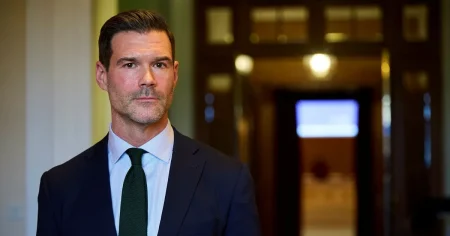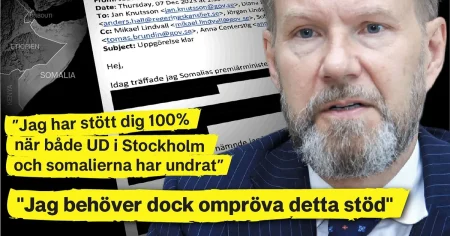From the start of the new year in Sweden, witnesses to certain crimes are permitted to testify anonymously. However, a social media post by Justice Minister Ebba Busch has sparked controversy and criticism for allegedly misrepresenting the scope of this new law. Busch’s Instagram post suggested that victims of crimes, also known as plaintiffs or complainants in legal terms, could also avail themselves of this anonymity. This assertion is inaccurate, as the legislation specifically addresses witnesses and makes no provision for anonymous testimony from victims. The miscommunication has led to accusations of carelessness and a lack of understanding of the law from legal experts and journalists.
The core of the controversy centers on the distinction between a witness and a victim. A witness observes a crime but is not directly harmed by it, while a victim is the individual who suffers the direct consequences of the criminal act. The new law allows witnesses to remain anonymous in cases involving serious crimes, those punishable by at least two years imprisonment, if there’s a credible threat of retaliation against them or their close relatives. This protection is designed to encourage witness participation without fear of reprisal, particularly in cases involving organized crime or other dangerous situations. However, this anonymity provision does not extend to victims, who are still required to identify themselves as part of the legal proceedings.
The criticism levelled against Busch underscores the importance of accurate communication, especially when dealing with sensitive legal matters. Legal experts, such as law professor Mårten Schultz, have publicly criticized the minister’s post, characterizing it as ”careless.” This criticism highlights the potential for misinformation to confuse the public and potentially undermine confidence in the legal system. The debate also raises questions about the minister’s understanding of a law her ministry helped implement. Journalist and author Olle Lönnaeus has directly questioned whether Busch comprehends the legislation she was instrumental in passing. Such criticisms raise concerns about the government’s grasp of the legal framework they are responsible for upholding.
The implications of this miscommunication extend beyond a simple social media gaffe. Misleading information about legal rights can have serious consequences for victims of crime. If victims mistakenly believe they can testify anonymously, they might be hesitant to come forward or might be unprepared for the realities of the legal process. This could ultimately hinder investigations and prevent justice from being served. The controversy also reflects broader concerns about the communication of complex legal information to the public. Simplifying legal concepts for broader understanding is essential, but it must be done accurately to avoid creating false expectations or misinterpretations.
The specific wording of Busch’s Instagram post seems to be the source of the confusion. While the accompanying text emphasizes the anonymity provisions for witnesses, the image itself may have inadvertently conveyed a broader message suggesting victim anonymity as well. This highlights the importance of clear and consistent messaging across all forms of communication, especially on social media platforms where visuals can often overshadow accompanying text. The incident also underscores the need for careful review and fact-checking before publishing information related to legal matters, particularly by individuals holding public office.
The ensuing debate underscores the delicate balance between simplifying legal information for public consumption and maintaining accuracy. While making legal concepts accessible is crucial for public understanding and engagement, it must not come at the cost of misrepresenting legal realities. This incident serves as a reminder of the potential consequences of miscommunication in the digital age, particularly when it comes to sensitive topics such as legal rights and criminal justice. The incident also underscores the responsibility of public figures, especially those in positions of legal authority, to ensure their communications are accurate and avoid perpetuating misinformation. The controversy surrounding Busch’s post highlights the critical need for clear, accurate, and accessible information about the legal system, particularly for those most likely to interact with it – victims and witnesses of crime.














